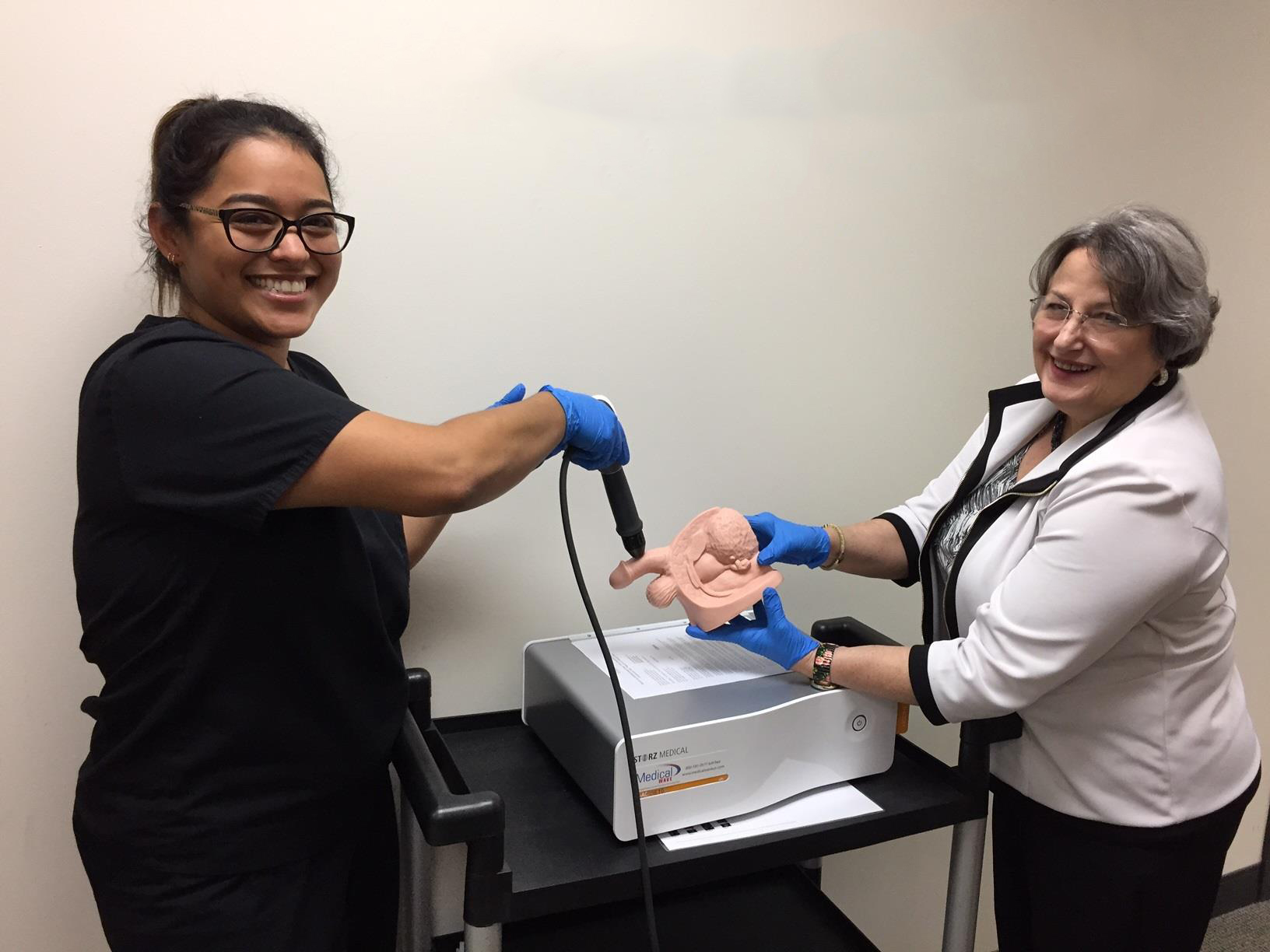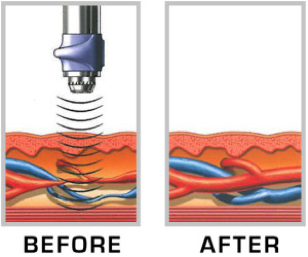Erectile dysfunction
Erectile dysfunction (impotence) is the inability to get and keep an erection.
Occasional erection trouble isn't necessarily a cause for concern. However, if erectile dysfunction is an ongoing issue, it can cause stress, affect your self-confidence, and cause relationship problems. Problems getting or keeping an erection can also be a sign of an underlying health condition that needs treatment, and it is a risk factor for heart disease.
If you're concerned about erectile dysfunction, talk to your doctor. Sometimes, treating an underlying condition is enough to reverse erectile dysfunction. In other cases, medications or other direct treatments might be needed.
Symptoms and Causes of Erectile Dysfunction
- Trouble getting an erection
- Trouble keeping an erection
- Reduced sexual desire
See your doctor if:
- You have concerns about your erections or you're experiencing other sexual problems such as premature or delayed ejaculation
- You have diabetes, heart disease or another known health condition that might be linked to erectile dysfunction
- You have other symptoms along with erectile dysfunction
Male sexual arousal is a complex process that involves the brain, hormones, emotions, nerves, muscles and blood vessels. Erectile dysfunction can result from a problem with any of these. Likewise, stress and mental health concerns can cause or worsen erectile dysfunction, and sometimes a combination of physical and psychological issues causes erectile dysfunction.
In many cases, erectile dysfunction is caused by a physical issue. Common causes include:
- Heart disease
- Clogged blood vessels (atherosclerosis)
- High cholesterol
- High blood pressure
- Diabetes
- Obesity
- Metabolic syndrome — a condition involving increased blood pressure, high insulin levels, body fat around the waist and high cholesterol
- Parkinson's disease
- Multiple sclerosis
- Certain prescription medications
- Tobacco use
- Peyronie's disease — development of scar tissue inside the penis
- Alcoholism and other forms of substance abuse
- Sleep disorders
- Treatments for prostate cancer or enlarged prostate
- Surgeries or injuries that affect the pelvic area or spinal cord
The brain plays a key role in triggering the series of physical events that cause an erection, starting with feelings of sexual excitement. A number of things can interfere with sexual feelings and cause or worsen erectile dysfunction. These include:
- Depression, anxiety or other mental health conditions
- Stress
- Relationship problems due to stress, poor communication or other concerns
Various risk factors can contribute to erectile dysfunction, including:
- Medical conditions, particularly diabetes or heart conditions
- Tobacco use, which restricts blood flow to veins and arteries, can — over time — cause chronic health conditions that lead to erectile dysfunction
- Being overweight, especially if you're obese
- Certain medical treatments, such as prostate surgery or radiation treatment for cancer
- Injuries, particularly if they damage the nerves or arteries that control erections
- Medications, including antidepressants, antihistamines and medications to treat high blood pressure, pain or prostate conditions
- Psychological conditions, such as stress, anxiety or depression
- Drug and alcohol use, especially if you're a long-term drug user or heavy drinker
Complications resulting from erectile dysfunction can include:
- An unsatisfactory sex life
- Stress or anxiety
- Embarrassment or low self-esteem
- Relationship problems
- The inability to get your partner pregnant
Treatment
Oral medications
Oral medications are a successful erectile dysfunction treatment for many men. They include:
- Sildenafil (Viagra)
- Tadalafil (Adcirca, Cialis)
- Vardenafil (Levitra, Staxyn)
- Avanafil (Stendra)
All these medications enhance the effects of nitric oxide — a natural chemical your body produces that relaxes muscles in the penis. This increases blood flow and allows you to get an erection in response to sexual stimulation.
Exercise
Exercise, especially moderate to vigorous aerobic activity, can improve erectile dysfunction. However, benefits might be less in some men, including those with established heart disease or other significant medical conditions.
Sometimes even less strenuous, regular exercise might reduce the risk of erectile dysfunction. Increasing your level of activity might also further reduce your risk.
Discuss an exercise plan with your doctor.
Psychological counseling
If your erectile dysfunction is caused by stress, anxiety or depression — or the condition is creating stress and relationship tension — your doctor might suggest that you, or you and your partner, visit a psychologist or counselor.
Penis Booster: Penile Shockwave Therapy for ED
If Viagra and Cialis pills are not working or they are too expensive and you wish not to give yourself shots in the penis, then this may be a great alternative. It works by using acoustic shock waves to create new blood vessels in your penis which allow your penis to become firm for intercourse.
We introduced this technology, which has been in use in Europe for 15 years, to our practice several weeks ago. The results have been amazing.
This new treatment is perfect for anyone with erectile disfunction, and for anyone who has been unsuccessful with other treatments.
We offer a free initial treatment to our patients so you can try out and understand the therapy. Schedule your appointment today.

Penis-Booster Therapy Frequently Asked Questions
Penis-Booster therapy uses high-frequency acoustic waves to open existing blood vessels in the penis, stimulate the growth of new blood vessels, and eliminate micro-plaque. The resulting increased blood flow to the penis yields stronger, harder, and more sustainable erections.

- Discontinued use of meds like Viagra and Cialis
- Enhanced erections
- Improved sexual performance
- Increased sensation in the penis
- More spontaneous erections
Results vary. Our first patient reported spontaneous morning erections after his second session, something he has not experienced in several years.
Clinical studies show few or no known side effects.
Depending on your goals, 6 sessions are usually the prescribed initial treatment course. Beyond that, periodic maintenance sessions may follow.
Prior to each 20-30-minute session, the patient should apply topical anesthetic at home. The non-invasive treatment occurs in the office with no downtime.
The first introductory session incurs only a copay or an office visit charge, which is billed to your insurance. Each subsequent session costs $300, which insurance does not cover.
Penis-Boost Therapy:
- is drug and surgery-free.
- is completely non-invasive and has few or no known side effects.
- provides lasting results with no downtime.
- treats the underlying cause of ED—poor blood flow.
Symptoms and Causes of Erectile Dysfunction
- Trouble getting an erection
- Trouble keeping an erection
- Reduced sexual desire
See your doctor if:
- You have concerns about your erections or you're experiencing other sexual problems such as premature or delayed ejaculation
- You have diabetes, heart disease or another known health condition that might be linked to erectile dysfunction
- You have other symptoms along with erectile dysfunction
Male sexual arousal is a complex process that involves the brain, hormones, emotions, nerves, muscles and blood vessels. Erectile dysfunction can result from a problem with any of these. Likewise, stress and mental health concerns can cause or worsen erectile dysfunction, and sometimes a combination of physical and psychological issues causes erectile dysfunction.
In many cases, erectile dysfunction is caused by a physical issue. Common causes include:
- Heart disease
- Clogged blood vessels (atherosclerosis)
- High cholesterol
- High blood pressure
- Diabetes
- Obesity
- Metabolic syndrome — a condition involving increased blood pressure, high insulin levels, body fat around the waist and high cholesterol
- Parkinson's disease
- Multiple sclerosis
- Certain prescription medications
- Tobacco use
- Peyronie's disease — development of scar tissue inside the penis
- Alcoholism and other forms of substance abuse
- Sleep disorders
- Treatments for prostate cancer or enlarged prostate
- Surgeries or injuries that affect the pelvic area or spinal cord
The brain plays a key role in triggering the series of physical events that cause an erection, starting with feelings of sexual excitement. A number of things can interfere with sexual feelings and cause or worsen erectile dysfunction. These include:
- Depression, anxiety or other mental health conditions
- Stress
- Relationship problems due to stress, poor communication or other concerns
Various risk factors can contribute to erectile dysfunction, including:
- Medical conditions, particularly diabetes or heart conditions
- Tobacco use, which restricts blood flow to veins and arteries, can — over time — cause chronic health conditions that lead to erectile dysfunction
- Being overweight, especially if you're obese
- Certain medical treatments, such as prostate surgery or radiation treatment for cancer
- Injuries, particularly if they damage the nerves or arteries that control erections
- Medications, including antidepressants, antihistamines and medications to treat high blood pressure, pain or prostate conditions
- Psychological conditions, such as stress, anxiety or depression
- Drug and alcohol use, especially if you're a long-term drug user or heavy drinker
Complications resulting from erectile dysfunction can include:
- An unsatisfactory sex life
- Stress or anxiety
- Embarrassment or low self-esteem
- Relationship problems
- The inability to get your partner pregnant
Treatment
Oral medications
Oral medications are a successful erectile dysfunction treatment for many men. They include:
- Sildenafil (Viagra)
- Tadalafil (Adcirca, Cialis)
- Vardenafil (Levitra, Staxyn)
- Avanafil (Stendra)
All these medications enhance the effects of nitric oxide — a natural chemical your body produces that relaxes muscles in the penis. This increases blood flow and allows you to get an erection in response to sexual stimulation.
Exercise
Exercise, especially moderate to vigorous aerobic activity, can improve erectile dysfunction. However, benefits might be less in some men, including those with established heart disease or other significant medical conditions.
Sometimes even less strenuous, regular exercise might reduce the risk of erectile dysfunction. Increasing your level of activity might also further reduce your risk.
Discuss an exercise plan with your doctor.
Psychological counseling
If your erectile dysfunction is caused by stress, anxiety or depression — or the condition is creating stress and relationship tension — your doctor might suggest that you, or you and your partner, visit a psychologist or counselor.
Penis Booster: Penile Shockwave Therapy for ED
If Viagra and Cialis pills are not working or they are too expensive and you wish not to give yourself shots in the penis, then this may be a great alternative. It works by using acoustic shock waves to create new blood vessels in your penis which allow your penis to become firm for intercourse.
We introduced this technology, which has been in use in Europe for 15 years, to our practice several weeks ago. The results have been amazing.
This new treatment is perfect for anyone with erectile disfunction, and for anyone who has been unsuccessful with other treatments.
We offer a free initial treatment to our patients so you can try out and understand the therapy. Schedule your appointment today.

Penis-Booster Therapy Frequently Asked Questions
Penis-Booster therapy uses high-frequency acoustic waves to open existing blood vessels in the penis, stimulate the growth of new blood vessels, and eliminate micro-plaque. The resulting increased blood flow to the penis yields stronger, harder, and more sustainable erections.

- Discontinued use of meds like Viagra and Cialis
- Enhanced erections
- Improved sexual performance
- Increased sensation in the penis
- More spontaneous erections
Results vary. Our first patient reported spontaneous morning erections after his second session, something he has not experienced in several years.
Clinical studies show few or no known side effects.
Depending on your goals, 6 sessions are usually the prescribed initial treatment course. Beyond that, periodic maintenance sessions may follow.
Prior to each 20-30-minute session, the patient should apply topical anesthetic at home. The non-invasive treatment occurs in the office with no downtime.
The first introductory session incurs only a copay or an office visit charge, which is billed to your insurance. Each subsequent session costs $300, which insurance does not cover.
Penis-Boost Therapy:
- is drug and surgery-free.
- is completely non-invasive and has few or no known side effects.
- provides lasting results with no downtime.
- treats the underlying cause of ED—poor blood flow.

